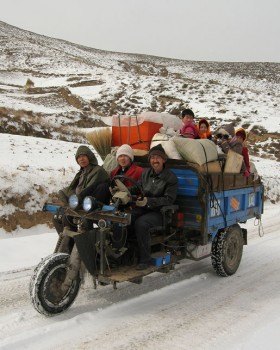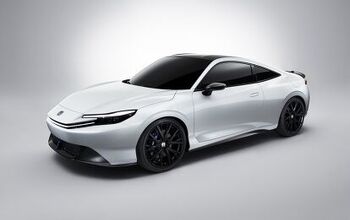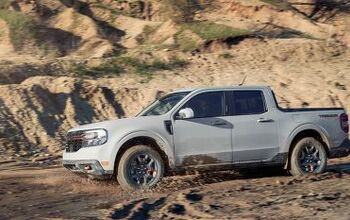No License? Chinese Police: "We'll Teach Ya"

The Chinese government wanted to create demand for an extra million vehicles per year with their “cars to the countryside” program. It goes like this: farmers who replace their three-wheeled vehicles for light commercial vehicles receive a maximum subsidy of 5,000 yuan ($731). Not enough to spur consumption? “For cost-sensitive farmers, a 10-percent subsidy is enough and would be effective to boost demand,” said Tan Jijia, an auto analyst at Pacific Securities Co. He was wrong. There is another problem . . .
Farmers in China rarely have driver’s licenses. Of the approximately 1.5 bn people living in China, only slightly more than 100 million are licensed to drive a car. Other than in the big cities, which clog daily with traffic, cars can still be an oddity in some rural towns. Even in larger cities more inland the preferred type of a taxi is the backseat of a motorcycle. That became apparent after the “cars to the countryside” wasn’t the roaring success it was hoped.
The lack of licenses won’t deter the Chinese; the Ministry of Public Security will dispatch policemen to the countryside to give farmers easier access to driving license examinations, Gasgoo writes. Even mobile offices for vehicle registration will be set up in rural parts of China. Normally a driving school teaches driving, and police stations issue the permits.
Unfortunately, there are no driving schools and very few police stations in the Chinese countryside. Between 55 and 80 percent—depending on whom you ask and who does the counting—of China’s population lives in rural areas. Even tier-3 cities often lack an essential element to car ownership: car dealers.
This should serve as another indicator that China, for the months of January and February the world’s largest auto market, is largely untapped.

Bertel Schmitt comes back to journalism after taking a 35 year break in advertising and marketing. He ran and owned advertising agencies in Duesseldorf, Germany, and New York City. Volkswagen A.G. was Bertel's most important corporate account. Schmitt's advertising and marketing career touched many corners of the industry with a special focus on automotive products and services. Since 2004, he lives in Japan and China with his wife <a href="http://www.tomokoandbertel.com"> Tomoko </a>. Bertel Schmitt is a founding board member of the <a href="http://www.offshoresuperseries.com"> Offshore Super Series </a>, an American offshore powerboat racing organization. He is co-owner of the racing team Typhoon.
More by Bertel Schmitt
Latest Car Reviews
Read moreLatest Product Reviews
Read moreRecent Comments
- Jeff Self driving cars are not ready for prime time.
- Lichtronamo Watch as the non-us based automakers shift more production to Mexico in the future.
- 28-Cars-Later " Electrek recently dug around in Tesla’s online parts catalog and found that the windshield costs a whopping $1,900 to replace.To be fair, that’s around what a Mercedes S-Class or Rivian windshield costs, but the Tesla’s glass is unique because of its shape. It’s also worth noting that most insurance plans have glass replacement options that can make the repair a low- or zero-cost issue. "Now I understand why my insurance is so high despite no claims for years and about 7,500 annual miles between three cars.
- AMcA My theory is that that when the Big 3 gave away the store to the UAW in the last contract, there was a side deal in which the UAW promised to go after the non-organized transplant plants. Even the UAW understands that if the wage differential gets too high it's gonna kill the golden goose.
- MKizzy Why else does range matter? Because in the EV advocate's dream scenario of a post-ICE future, the average multi-car household will find itself with more EVs in their garages and driveways than places to plug them in or the capacity to charge then all at once without significant electrical upgrades. Unless each vehicle has enough range to allow for multiple days without plugging in, fighting over charging access in multi-EV households will be right up there with finances for causes of domestic strife.


































Comments
Join the conversation
superbadd75: "...have not only never driven..." Hmmm... the way I read it, they drive all the time. They just have never been licensed to do so. Who knows, they might be pretty skilled at handling those things.